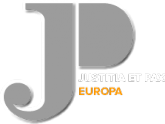
European Justice and Peace Commission: A Hard Border would do Great Harm
“A hard Border would do great harm.” This is the message 25 General Secretaries of the European Justice and Peace Commission took home from their annual meeting from 9 – 11 February in Northern Ireland. Talks with peace activists, Church and political leaders during the meeting centred on the potential impact of Brexit on the 1998 Good Friday Agreement. Working on the basis of the Catholic Social teaching, the Justice and Peace Europe network is composed of more than thirty national commissions. Archbishop Jean-Claude Hollerich from Luxembourg is currently president of the network, which engages in research and public debate on matters relating to social justice, peace building and the protection of the environment. The Northern Irish academic and former politician Monica McWilliams, the Presbyterian Minister Dr Ken Newell, the historian Dr Eamon Phoenix, the Superior of Adoration Sisters in Belfast, Mother Mary Josephine, Ed Petersen from the Clonard Peace and Reconciliation Mission and Bishop Noel Treanor from the Down and Connor diocese were among the interlocutors of the participants. The former Belfast Mayor and Member of the Northern Irish Assembly, Alban Maginness, gave a keynote speech to the European meeting. He explained the relevance of the milestone Good Friday Agreement of 1998 for the Northern Irish Peace process. It sets out provisions for the status of Northern Ireland within the United Kingdom, relations between the United Kingdom and the Republic of Ireland and relations between Northern Ireland and the Republic of Ireland. Inspired in itself by the European integration process, it was conceived of on the basis of both the Republic of Ireland and the United Kingdom being members of the European Union. Thus, with Brexit, it risks losing its foundations. The return of a hard border between Ireland and Northern Ireland would be especially damaging for the economy and for political stability in Northern Ireland. Such an outcome would in fact present a serious risk for peace and reconciliation and might again heighten the level of violence among communities. A precise, clear and unambiguous solution to avoid a hard border is therefore needed. Participants of the Justice and Peace meeting agreed to convey this message to their national and European political leadership. Further items on the agenda of the Justice and Peace meeting were the adoption of a statement on the critical situation in the North of Syria, a decision on closer cooperation with the Catholic Global Climate Movement and on stronger ecumenical relations. With a view to the forthcoming European elections in 2019 Justice and Peace Europe will focus its activities on four priority areas: arms export by EU member states, respect for human rights by multinational companies, appropriate working and living conditions for migrant workers within the EU and the reduction of food waste in the European single market.
. For more information please contact: secretary@jupax-europa.org



